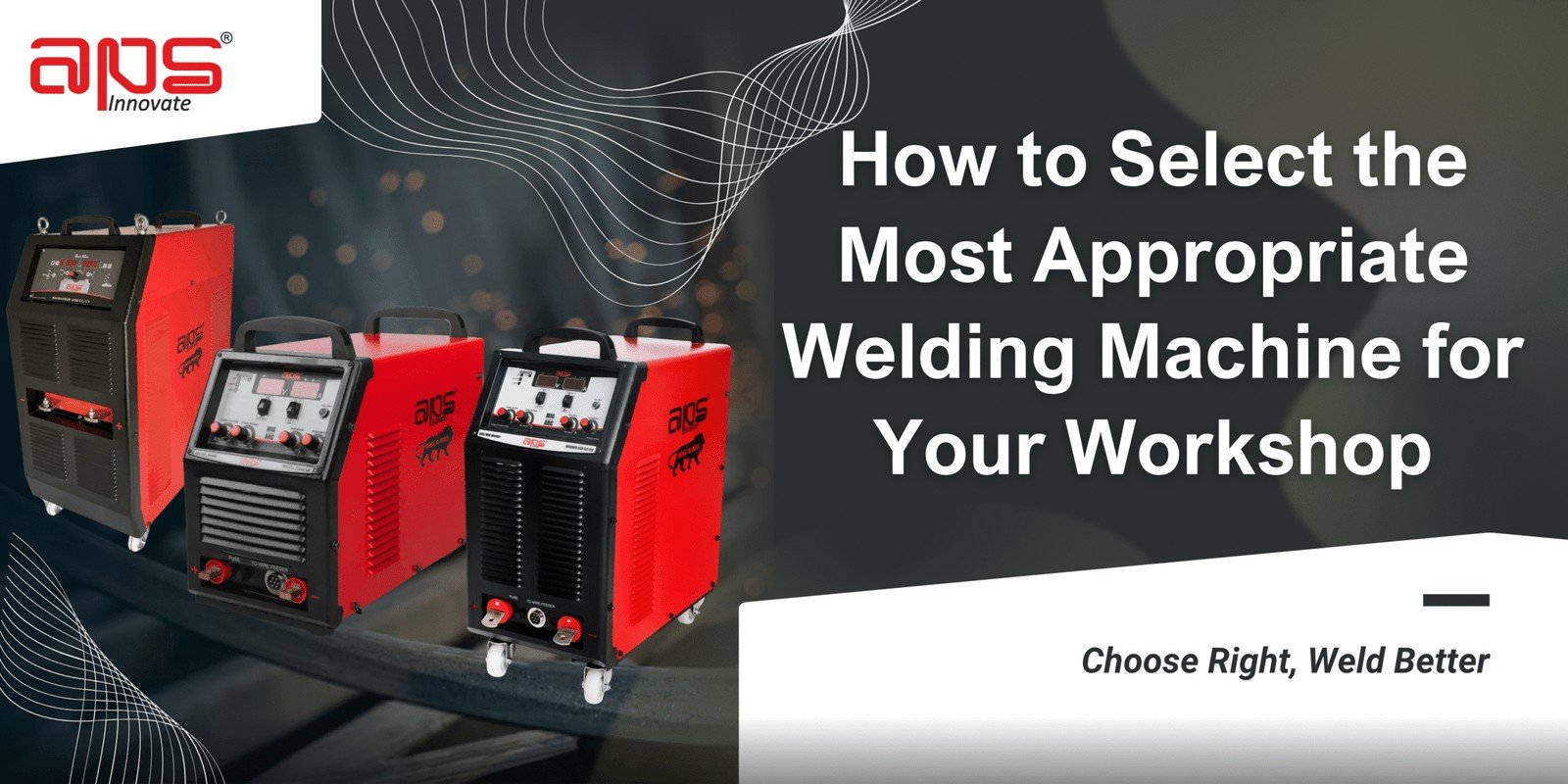Selecting the most suitable welding machine for your workshop is perhaps the most significant productivity, quality, and cost-effectiveness decision. Whether you operate a fabrication shop, auto workshop, or heavy engineering facility, the appropriate welding machine will enable you to produce uniform results, minimize rework, and enhance profit margins.
But with all these welding machines to choose from—MIG, TIG, Stick, SAW, CNC, Automation—how do you choose the best?
Here’s a step-by-step approach to assist you in making the right choice.
1. Know Your Application & Material Type
Ask yourself:
What kind of materials do you weld most frequently?
o Mild Steel
o Stainless Steel
o Aluminium
o Alloy / Hard Metals
How thick is the material?
o Thin Sheets (0.5–3mm)
o Medium Plate (3–12mm)
o Heavy Plate (12mm+)
Various materials and thicknesses need different welding processes and equipment.
For instance:
- Thin sheets = MIG or TIG
- Heavy plates = SAW, Stick, or Automation
- Stainless = TIG
2. Select the Proper Welding Process
Every welding process has its advantages and disadvantages:
| Process | Best For | Advantages |
| MIG (GMAW) | Mild steel, medium thickness | Fast, easy, productive |
| TIG (GTAW) | Stainless, aluminum, thin sheet | High precision, clean |
| Stick (SMAW) | Outdoor, construction, thick metals | Simple, low cost |
| SAW (Submerged Arc) | Heavy fabrication, vessels | Deep penetration, high speed |
| Robotic/Automatic | Repetitive production | Consistent quality, low labor |
| CNC / Gantry | Large structures, beams | Exact control, automation |
3. Think of Your Power Supply
See what kind of power is available in your workshop:
- Single-phase (220V) → Only light welding machines
- Three-phase (415V) → Industrial / heavy-duty units
⚠ Don’t purchase a machine that your power setup can’t handle.
4. Manual or Automation?
Manual Welding Machines
- Low cost
- Suitable for small batch work
- Trained welder needed
Semi-Automatic / Automatic Welding Machines
- Reliable quality
- Increased production
- Less operator expertise required
- Sustained cost savings
If your workshop produces large quantities or heavy products → Automation is a good investment.
5. Inspect Duty Cycle
Duty Cycle = how long the machine can be used continuously without overheating.
Example: 60% duty cycle at 400A
➡ weld 6 minutes, rest 4 minutes
For production welding, select high duty cycle (60–100%)
6. Consider Build Quality & Reliability
- A lower-cost machine could cost you more in breakdowns and rework.
- Select machines with:
- Robust frame and components
- Consistent arc performance
- Established brand reputation
- Service network & spare availability
7. Consider Features & Technology
New machines include features that enhance productivity:
- Digital controls
- Synergic settings
- Memory presets
- Touchscreen interface
- Remote control / Automation integration
- Safety systems (overheat, overload, voltage protection)
8. Consider Future Expansion Consider Future Expansion
Don’t shop just for today.
Select a machine that can accommodate your future growth.
- Will you be welding bigger pieces in the future?
- Will you be moving to stainless or aluminum?
- Will you be automating in the future?
- Modular or upgradeable machines pay off in the long run.
9. Total Cost of Ownership
Don’t consider just purchase price.
Plan for:
- Operating cost (electricity, gas, wire)
- Maintenance cost
- Skill requirement
- Productivity (time saved)
- Cost of rework / repair
- Life of the machine
- An expensive high-quality machine can save lakhs in the long run!
10. Select a Reliable Manufacturer
When buying a brand, check for:
- Welding machinery experience
- Good industry reputation
- After-sales service
- Spare parts availability
- Ability to customize
- Training & installation facility
BONUS: Essential Machines for a Professional Workshop
Depending on your profession, keep in mind:
- MIG / MAG Welding Machine
- TIG Welding Machine
- SAW Welding Machine
- Column & Boom Welding System
- Welding Positioner
- Turning Roller / Rotator
- CNC Gantry Welding / Cutting Machine
- Flux Recovery System
- Fume Extraction System
Conclusion
Selecting the best welding machine is not a question of purchasing equipment—it is about making an investment in productivity, quality, and expansion.
When choosing a welding machine, always keep in mind:
- Material & thickness
- Welding process
- Power available
- Manual vs automation
- Duty cycle
- Features & technology
- Long-term cost
- Reliable manufacturer
Need Assistance Selecting the Ideal Welding Machine?
We at APS Welding produce:
- Column & Boom Systems
- Positioners & Rotators
- SAW & MIG/TIG Machines
- End-to-End Welding Automation Solutions
- Custom-built units for your process
Tell us your requirement, and we’ll recommend the ideal machine for your workshop.
- Schedule a Free Consultation Today!
- Email: info@apswelding.com
- Call / WhatsApp: +91-96014 44111

